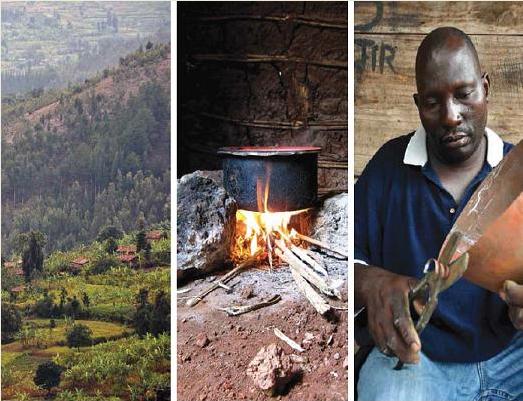News

A report by the Africa Renewable Energy Access Program (AFREA), supported by ESMAP, Wood-Based Biomass Energy Development for Sub-Saharan Africa | Issues and Approaches takes a close look at the current state of the biomass energy sector in Sub-Saharan Africa in order to identify new approaches to energy sustainability. The report argues that the creation of a sustainable wood-based biomass energy sector could help African countries in achieving the Millennium Development Goals (MDGs), energy security, low-carbon growth, and sustainable natural resources management.
In Sub-Saharan Africa, energy security is affected by several key developments: population growth, accelerated urbanization, economic development and relative price changes of other energy options. These developments have offset important achievements made in the last decade in energy access, rural electrification, and the promotion of alternative energy sources. Over 80 percent of African households continue to burn solid fuels, with about 70% depending on wood-based biomass as their primary cooking fuel. In most Sub-Saharan African countries, the wood-based biomass energy sector employs a significant workforce, providing regular income to up to tens of thousands of people.
The report finds that given the continued importance of wood-based biomass energy in Sub-Saharan Africa, a sustainably designed and operated biomass sector could substantially reduce greenhouse gas (GHG) emissions, create jobs, and help launch low-carbon growth programs. Recommendations of the report include:
- focusing on the conversion of wood into charcoal as the step in the value chain with the highest potential for reducing GHG emissions;
- the involvement of civil society organizations to promote private sector participation, monitor taxation and further diversify those involved in the fuel wood chain;introducing new stoves gradually, through a process of testing, to allow the process to grow organically, slowly building local demand; and
- taking gender into consideration at all steps when introducing new stoves.
